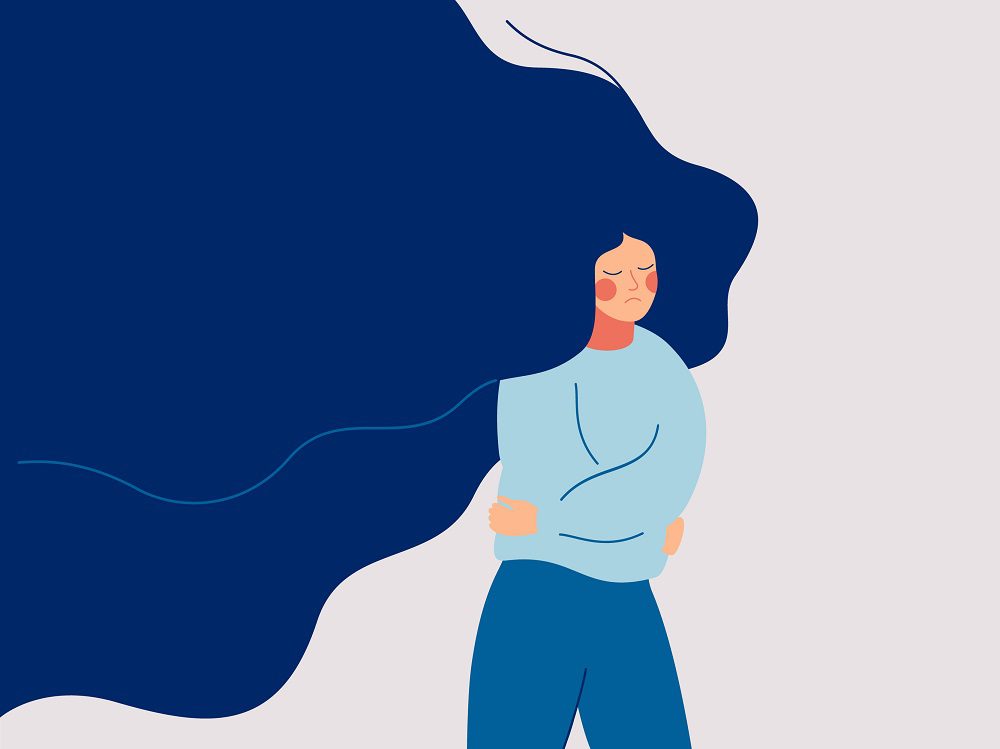
3. Disorganized or easily distracted
Often, individuals with Bipolar Disorder struggle to keep things in order. They are unable to work when things are organized and prefer chaos. Most of the time, this hinders them from completing tasks and they remain in a state of disorder.
Another characteristic is that they are easily distracted by things around them. Maintaining focus on what they need to do is challenging, and because they are easily distracted, they struggle to complete tasks in a timely manner.
A piece of advice from doctors would be to try not to take on too much in order to avoid problems with superiors and the emotions they experience. They are easily emotional when it comes to disappointment and tend to create problems that don’t exist in real life.










please do not scare people and put fear and paranoia in their mind and eventually they get it. instead please give preventive measures. all the people are trained in 12 step you can prevent and also can be used as a treatment
Great answer . I could have not said it better myself. Ty🩵🩵🩵
You are absolutely right. In these days doctors see a patient as a money not as a person who need a help to live.
Inna, you are on the target, every inches of Health Care provider, either from the hospitals, doctors, stuffs, medicines and facility are in it for the MONEY. Back in the days pre1980 our medical professional are there to help and accommodates us on how to prevent us as patient how to get better with proper advise and how to fix it naturally. These days forget it. The more they can squeeze us dry the better they feels. God bless all of us as patients. I believe in God, and more importantly what goes around will come around.
By the way their are three states of mind to manic depressant (bipolar). Manic….depressant…& normal state. They flexuate between the three for different durations.
Agree
You can’t get something just by reading about it. You’re like the people that think that kids are going to become gay if they learn about homosexuality. You are the dangerous one, not information.
I agree with you solutions, not fear.
Lisa: Bipolar cannot be prevented.
Agree.
Lisa, I agree with you.
It can be treated. No cure yet
Any disease can be prevented, seniors depression is misunderstood. Their loneliness and exclusions in family affairs can damage them. we all need to make sure the elders in our family are kept active and included in conversations , ideas, and ask for their opinions in subjects being discussed. They need to feel relevant because once they start to feel old and unimportant, They let go.
Any disease can be prevented, seniors depression is misunderstood. Their loneliness and exclusions in family affairs can damage them. we all need to make sure the elders in our family are kept active and included in conversations , ideas, and ask for their opinions in subjects being discussed. They need to feel relevant because once they start to feel old and unimportant, They let go.
Agree, it is a disease that can not be prevented
Actually there have been studies that suggest just the opposite. Environmental factors such as extremely abusive upbringings can cause the onset of many emotional and mental health difficulties.
It’s a genectic disorder. Mental disorders run in families. It’s a mutated gene that is passed to the next generation.
If you mean 12 step programs that is not a mental health treatment.
This is not something that is “preventable”
Lisa: I don’t agree with you.
Wilson: I Do agree with you !!!!
Lisa: Evidently, you don’t understand Mental Health Issues, at all. It is mainly, genetics but when you add in bad life experiences, on top of that. It can really screw with your mind big time!! Being bipolar or any other kind of Mental health issues someone may have, it is NOT Preventable at all, etc. We are taught many Coping Techniques and along with medication, if needed.
I’m not sure I understand this response . Some forms of bipolar must be treated with medication .
Bipolar disorder.
The symptom is the illness and the illness is symptom. You are bipolar because you talk too much. You talk too much because you are bipolar.
Every thing in the DSM is not based on empirical data. It is voted on by APA drug distributors.
The APA now has applied mental illness to those that oppose authority. Those that believe in conspiracies, even though proven true. Or question anything in the DSM.
Since the VA mental healthcare system sided with the FBI and DHS to prevent veteran suicides the number of veteran suicides increased from 22 a day to 44 a day. Many from psychotropic medications and malicious misdiagnosis such as bipolar disorder.
Psychology and Psychiatry are political organizations that punishes political opposition.
Medical doctors make decisions on empirical data, The APA makes decisions based on flawed opinions.
Most symptoms addressed in this article are symptoms of attention-deficit/hyperactivity disorder (ADHD); impatience, intense emotions, lack of self-regulation, distractibility, inability to focus, disorganization, restlessness, difficulty sleeping and rapid speech. Often people with ADHD also experience depression and or anxiety. ADHD symptoms may change over time but often carry into adulthood and are not episodes. ADHD is a persistent illness. Someone with ADHD and depression could and often are misdiagnosed with bipolar disorder.
With bipolar disorder (I or II) the depressive episodes are at least two weeks and can be alone or mixed with manic or hypomanic episodes, but it is not necessarily one or the other. To have one episode of depression or manic in a year or more can be considered bipolar disorder. A rapid cycler has 4 or more manic episodes in one year. The depression is episodes, not chronic.
I know I have been misdiagnosed. From the time I was very young I exhibited ADHD symptoms but in that day and time it wasn’t a thing. I was labeled a daydreamer and attention seeking. As I got older I was labeled as depressed. Then Bipolar. I read up on ADHD and realized that’s it I am on several meds for Bipolar which could be making things worse or no help at all. I realize now that a number of members of my family show the signs of ADHD. I’m not sure how to get off of this Rollercoaster.
My wife has bipolar manic depression
I feeel for ya as iv been there done that, I’d run off if I was you
Did you just advise a person to abandon their sick spouse?
I understand that comment completely.
What happens when some of us feel like we should be tested for this but the professionals don’t believe us and come up with a different conclusion? Do things have to be extreme or dangerous before we are taken seriously? Just asking.
I have never be diagnosed bipolar , just chronic depression and generalized anxiety.( but no one can say I am) .
Reading your post , I think people shouldn’t be caged in one classification and we should analyze customs, culture and the way we were thought to live . Example,, in my house I hate to see the kitchen and the bathroom dirty so I try to educate people living with me how to maintain cleaning . Is that mania ? I do not think so. On the other hand there are things that I pass them on and I can stand. We tend to confuse ways of living and likes and dislikes with “ names” ( bipolar etc etc ). . If we say that some behaviors are a result of MANIA, BIPOLAR etc . Then we should say that all people are Bipolar. Thanks .
I tend to agree with you. Human nature does have personalization. Modern Medicine has the opinion that needs to be categorized, why? So let people be an individual without being categorized as an illness. Different cultures have different reasons. I’ve noticed that socialized medicine in government cultures (China, Canada etc.) has created people that overuse the system when nature has given people the ability to rely on their own immune system. And then feeling they need to overmedicate to feel healthy. My point is Modern Medicine can overanalyze and overmedicate. Doesn’t it make sense to just calm down make more sense! I’m hoping Modern Medicine hasn’t become political but I am not sure anymore.
I completely agree with you!
I have an acquaintance who is very clean with some OCD. It can start in young children when they believe ‘If I do this that may turn out well for me & If I repeat it over & over the better it could turn out. As parents we must recognise these behaviours and change them with education . Showing that even if they saw success doing this it was fluke & through discussion, understanding. We must seriously convince them that most of us have tried to get what we want in this way & it is proven to fail.
the above mentioned acquaintance was told she possibly had bipolar disorder & that they needed further exploration. She actually resigned herself to being schizophrenic & began relating to reading material. After all this a second opinion was that she had no such disorder at all. Her issues were that she was highly sensitive & still in her late 40’s overly close to her parents & as an only child they were all extremely close with no other family around them.
I do also agree with the poster Lisa Shajan
I respectfully disagree as I have a 37 year old son who was diagnosed at 18 as Bipolar Ii and at 37 and on 2 medications he does better. Bi polar for some manifest as a general inability to manage life skills. Extreme emotional instability affects all aspects of his life e.g maintaining healthy relationships
, keeping a job, toerating being around people in general. It affects the self esteem which is disabling and persistent. It is a life long struggle with managing life survival. That is why suicide is so prevelant in this sector of the population. Please find more information on the National Alliance of Mental Illness (NAMI) website. They have been extremely helpful to our family. Take care.
Great comment. You are right on point there!
There are plenty of treatment options out there. It’s more common than you may think. The meds will help stabilize although it may take some trial and error.
Do you know any psychology that take medicare
I lived with a wife that suffered from this disorder. I was not aware of it before I got married as she hid it well, long enough to get a ring on her finger then 3 months after we were married it hit like a rainstorm. Chronic depression followed by periods of extreme mania. She took me along for a horrible ride that to this day still affects me. It ruined my life and took me all the way to homelessness. I tried to deal with it but she wasn’t having that whatever I did to try and help was turned away. It literally destroyed me dealing with all of her symptoms. She seemed to enjoy watching me suffer. Whatever you do don’t get involved with someone suffering from this illness it will destroy you too.
I was diagnosed with bipolar disorder in 1987 and it was often rather chaotic as far as moods being unstable. I am now almost 76 yrs old and one of the changes I have seen is the stigma of being bipolar isn’t as demeaning as when I was in my 30’s-40s, The meds are better. It has affected my whole adult life, but good management medication has kept my senior years stable. I have treated the diagnosis of bipolar no differently than heart disease.
If you dx bipolar in older population it best be after a thorough neuropsych and neurology appt and an MRI or PET scan. Frontotemporal dementia looks remarkably like bipolar and much more likely than old age bipolar.
One type of bipolar disorder. is psychosis. A psychosis is the medical term for insanity. It is a very serious disorder and benefits from psychotherapy with a highly trained psychotherapist. Also,medication prescribe by a psychiatrist can be extremely helpful.
this post to sale drugs scare senior and make doctor make more money
You make it sound like it’s this horrid thing. There are tons of people who committ suicide, does that mean they were bi polar? it’s easy to label a person, and harder to understand them. Not to mention there are levels, not all are cookie cutters.. Everyone is different..
Bipolar is most likely a result of societal expectations coupled with a desire to please those whose intentions are not authentically or inherently good, Leading to repressed feelings and unrealistic expectations of one’s self. People love to drown you in medications that can lead to more serious medical problems such as kidney and liver damage. Bipolar is a cookie cutter diagnosis to label people they can’t or won’t tolerate, yet you better put up with THEM or ELSE!
I was diagnosed with bipolar disorder, and believed it. As a result, I lost 30+ years and very nearly my life to a medicated daze. Detoxing from benzodiazepines isn’t easy, but, lucid and creative again, it’s thrilling to be myself again. It’s okay. I’m thrilled a lot.
It’s just who I am
Valerie Taylor
Excellent article, it helps to understand this illness.
I am Bi-Polar, but it is well controlled by a drug called Abilify. This is a manageable disorder!
I’m a bipolar manic depressant person!! I have been most of my life.. It started out a little bit as a child, teenage years got worse as I reached adulthood it got worse, finding out that I was born addicted to alcohol (Liquor). I was diagnosed with
Fetal Alcohol Effect Symptoms (Neurological issues) adding on top of that, and finding out that my my biological father was Manic Depressant as well as having Schizophrenia, in my mid 20’s. I laughed and told the doctor it sounds like, I was doomed at conception and he says, I can’t comment that statement. I pretty much understand what he meant by that. Plus, having PTSD, anxiety and panic disorders doesn’t help, either.
this is garbage i dont fuck suck men and this is a lie to make people drug dependent
I’m appalled at the mental health care system in America. People that need help desperately have to wait. People that are clearly suffering from mental illness are being allowed to make decisions that they clearly aren’t in the right mind to.
I have it how can I get help
Bipolar cannot be prevented. It cannot be predicted. Any life altering event can “set-off” any bipolar tendencies one may have but not know about. It is extremely difficult to find the perfect medicinal blend to work with any individual case of bipolar. Sometimes, it when it seems one combo of meds is working, they stop and you have to start over again. It can be a never-ending process – depending on the type and severity of each individual case.
Been schizo for years, the bubble is boring, fet came w/lucky narcan & Su box one is as the world’s gift. Too, it’s back to whisper a dole. Shall we stay up for the Sun? God Loves And Jesus Saves. Right.
I have bi-polar 2. It’s not fun
For my Dear Freind Mr Clark I thought this might help and it’s short and sweet Please read and give me a call you don’t need to hide from me
I need more info to help better when situation arise
I have bipolar 2, your symptoms are spot on. Another difficulty I have is impulse buying. all the items I think I need for a new hobby and never starting them. I have lots if supplies for Mandela painting, rock painting, and a tub of yarn – I knitted a few things 3 years ago, then stopped, but I bought more yarn!
I want you to know that the people that are bipolar have a very hard time their selves they do things and say things and don’t even realize it sometimes not at all and sometimes a little later by then it’s too late they can’t change what they’ve done and there’s so many medicines out there that don’t work I know it’s hard to deal with it’s also hard on the person that has it
I like the. I feel different , Some times i change y myself but i don’t have control !? I don’t know what happened! In real time!.. some time I have Control,I don’t know Net episode came to me. I am sorry,myself i tried living Normally but. is difficult I love God !! Amen 🙏!! God bless you!! Thanks
I read that BPD has been in the DNA of some of us for eons. I certainly believe that it is hereditary because my mother & daughter & I all have it & Mama thought her mother had it. Mine is not as severe & the meds I tried had bad side effects so I am unmedicated but my daughter & mother both stayed on meds b.c. both the mania & the depression put them in danger.
I was told that I have symptoms of bipolar disorder, but I don’t have bipolar disorder. Really? All I could say to that is that can I show symptoms of being pregnant and I am not pregnant? Either I am pregnant or I am not pregnant. It’s very frustrating to say the least.
No answer as whom to see for help/
Bipolar disorder is different in every one. It is extremely dangerous for some who have intense mania because of the danger they can put themselves in. It is also very dangerous for family and friends who try and help. I became extremely stressed and ill trying to help a friend who lived with me. I wound up in the hospital with heart problems and it aged me tremendously. Don’t mess around get hospitalized immediately if symptoms of bipolar arise. Problem is doctors and hospitals don’t keep patients long enough or give proper meds.
I have been bipolar for years, but have learn to control it pretty good. I have been through years of abuse of all different kinds. It started with sexual abuse by my father for 8 years, then changed to verbal, emotional , and physical abuse from every person I dated. I was only married once that didn’t last but a short while because of abuse there too. I’ve had a lot of problems with my emotions and being hurt so much. I wasn’t able to have children. I had a miscarriage once, which didn’t help matters. I can’t talk to my family because they have turned against me. It’s really hard on me, and I have a sister that hasn’t spoke to me for many years. That really hurts me, and makes things harder for me. My other sisters don’t want me to talk about it, and gets mad at me when I try to. Don’t they know it hurts even more? My mother died about 8 years ago, so I no longer have her. I don’t really have friends and I never really have. I was always afraid everyone would find out and make me feel worse. One sister has lied about me for years, and has told her kid about me and certain things about my past and they have made fun of me and hurt me even more. My sister that I have been the closest to, now doesn’t talk to me much and hasn’t seen me in over a year. Don’t they know that this all hurt me soo much?! My family has party’s and get togethers, but I haven’t been invited for 10 years. I just stay home by myself all the time and just sleep a lot. Thank the Lird Jesus for my cats! I love them so much.
Helpful information
I saw one patient had also agreaaive attacks
The more education I get about bipolar issues the better off I am to understand if and when it happens in my extended family including in-laws and persons I interact at the office or in street. As an engineer, in my academic education I got zero knowledge about personal issues such as bipolar medical predicaments. And yet, at work, in the office environment we interact with person which often times are considered sometimes as “weird’ for lack of understanding issues as bipolar behavior. Thus, I am thankful to read about these type of issues in thi media.
If that’s the case what are the available medicine for this Warning Signs of Bipolar Disorder in Seniors?
This is a poor description of a complex psychiatric condition. When patients are in a manic state, they are euphoric, need little sleep, agitated, driven, become hypersexual and spend money recklessly. They have flights of ideas, get angry if they are thwarted, and have pressured speech. Appetite is diminished and they lose weight with all the hyperkinetic activity. They are more social and outgoing than usual but are poor listeners. The defining criteria is a loss of insight and judgment into the effects their behavior is having on themselves and others. They punch police officers when pulled over for speeding, have children out of wedlock, get deep into debt. They deny they have a problem and often refuse treatment because they think everyone else is wrong and trying to stop them. They have delusions of grandeur and are often extremely generous despite increasingly destructive consequences. Some self medicate with alcohol and can become alcoholics. Treatment is difficult when the sufferer lacks insight into their own condition.
If they also have bouts of depression, the opposite is true. They may sleep excessively, lack motivation and drive, stop taking care of themselves, overeat, withdraw and isolate themselves. Some are unipolar manics and NEVER have bouts of depression. But if they get depressed, that’s when suicidal thoughts and self doubt creep in which can be catastrophic.
I was diagnosed with bipolar 2 ,ptsd
among other to mental others. Bipolar 2 is extremely horrible with depression enough to attempts of suicide. Bipolar 2 is not resolved quickly . I’ve had this condition since a child but was not known for years . Although episode of manic are less occasional as compared with the bipolar 1 can be shorter episodes it can be a fast and harmful.
Both Bipolar 1 and to are a serious mental condition. Your description of both 1 and should be more accurate before as they are not.